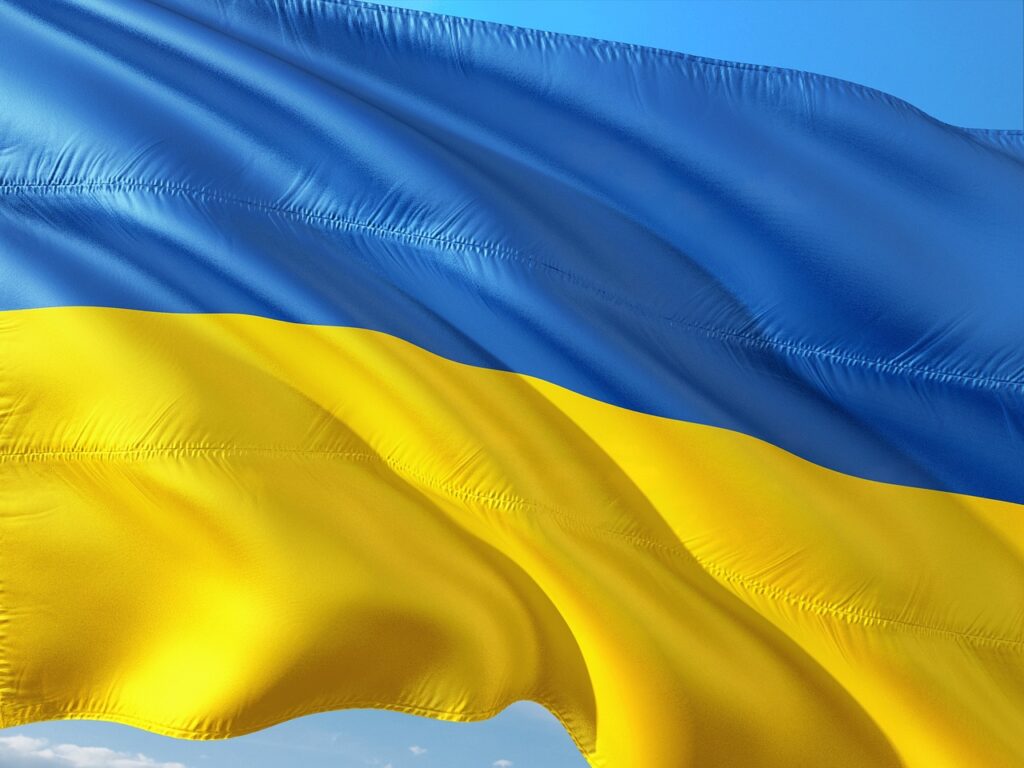
The government increased prevention efforts. The Ministry of Social Policy (MSP) continued to lead anti-trafficking efforts at the national and local levels, but observers continued to widely criticize the ministry for ineffective coordination and engagement on anti-trafficking efforts, especially as Russia’s war against Ukraine affected MSP resources and personnel. Experts noted no one individual held the position of national coordinator to execute the ministry’s anti-trafficking responsibilities, weakening its leadership on this issue. The government expanded the membership of the interdepartmental working group for combating trafficking. In 2022, the government, in partnership with an international organization, consulted stakeholders to revise its national anti-trafficking strategy to account for the impacts of Russia’s war against Ukraine; at the close of the reporting period, the strategy was pending further input before it could be referred to the cabinet for approval. In the absence of a national strategy, some oblasts pursued their own anti-trafficking measures. MSP did not publish a report on the implementation of the government’s anti-trafficking policies. The NPU published its efforts to combat trafficking online. Throughout 2022, the government passed laws, regulations, and decrees in response to social and economic hardship resulting from Russia’s full-scale war against Ukraine; while most laws did not directly address trafficking, taken together, the laws reduced vulnerability to exploitation among Ukrainians, migrant workers, foreign nationals, stateless persons, displaced children, missing persons, and prisoners of war. In May 2022, the government and the UN Secretary General’s Special Representative on Sexual Violence in Conflict signed a framework agreement to counteract sexual violence, including preventing conflict-related trafficking. In August 2022, the government adopted a new State Strategy for Equal Rights of Women and Men Until 2030, which included the topic of trafficking in persons. The government continued to sponsor a hotline dedicated to trafficking, gender-based violence, and violence against children. In 2022, the government hotline received 50,944 calls, a significant increase compared with 22,128 calls in 2021; 56 potential victims were identified or referred to local agencies and NGOs for assistance (75 in 2021). In 2022, the government added a line to receive international calls from Ukrainians who fled the war. NGOs, with international donors, operated additional anti-trafficking and migrant advice hotlines, which received over 81,000 calls; the NGOs did not report how many calls were related to trafficking. OPG, in collaboration with partner organizations, continued dedicated channels on social media platforms to prevent and detect child trafficking, and improve communication with child trafficking victims or witnesses. The government took several measures to improve access to identification documentation and official registration for vulnerable populations; lack of documentation and access to state services was a risk factor for trafficking. In October 2022, a government decree streamlined the process of issuing national identification documents and passports, and a similar resolution granted permission to foreign nationals and stateless persons holding temporary or permanent residence to stay in Ukraine if their residence expired after February 24, 2022. Authorities, in coordination with NGOs, international organizations, and local partners, conducted extensive awareness campaigns throughout the country, including via television, news outlets, social media, text message, print media, video, chat bots, and public awareness events. The campaigns focused on the risks of trafficking during the war for displaced persons, refugees, and Ukrainians abroad, particularly at border crossings and train stations. One nationwide campaign reached more than 28 million Ukrainians. NGOs and international organizations conducted additional awareness activities. The State Labor Service (SLS) published recommendations for Ukrainians contemplating working abroad, including information on trafficking risks on its website.
Unaccompanied minors, children in government-run institutions, and thousands of children forcibly transferred or deported to Russia were at high risk of trafficking. To track and protect such children, the government created a register for “displaced” children; however, observers noted the government only collected data on unaccompanied and evacuated children, not those separated from legal guardians. Even before Russia’s full-scale invasion of Ukraine, observers assessed protection of children in Ukraine’s government-run care system as inadequate. Human rights groups and media reported unsafe conditions in institutions, and there had been allegations that officials of several state-run institutions and orphanages had been complicit or willfully negligent in the sex and labor trafficking of girls and boys under their care. NGOs reported trafficking risks increased for such children due to the conflict. In March 2022, the government established a procedure for evacuating Ukrainian children from institutions in areas of armed hostilities to other areas in Ukraine and abroad. At least 195 education, health care, social protection, and private institutions for children were evacuated. The government developed recommendations for countries receiving Ukrainian children, visited institutions for children, and worked with international law enforcement to identify possible child trafficking victims. However, experts expressed serious concerns with the government’s evacuation efforts with consistent and troubling reports highlighting Ukrainian children’s vulnerability to exploitation, including trafficking. Media reported one case where a Ukrainian legal guardian of 10 Ukrainian children abused and allegedly exploited the children in sex trafficking in Poland.
NPU and MiPol continued to monitor and investigate formal and informal recruitment networks, including companies advertising jobs abroad, and worked with other stakeholders to raise awareness about known recruitment schemes. The Ministry of Economic Development and Trade oversaw the licensing of labor recruitment agencies and conducted regular and random inspections on their activities. During the previous reporting period, legislation banning recruitment companies from charging fees to citizens seeking employment abroad was registered in parliament; the legislation had not been adopted by the end of the reporting period. In March 2022, the government suspended planned and unplanned labor inspections during the conflict, compared with 7,231 labor inspections which it conducted in 2021. NGOs previously reported there was an insufficient number of labor inspectors to effectively meet their mandate. Observers expressed concern over the lack of oversight of the labor market, with reports of workers not receiving payments, although the SLS continued awareness efforts and informal monitoring. The government made some efforts to reduce the demand for commercial sex acts; Article 149 reportedly criminalized the act of knowingly soliciting or patronizing a sex trafficking victim, but an NGO noted the language in the statute is broad. The government continued to provide victim identification and referral training to diplomats.
from 2023 Trafficking in Persons Report – U.S. Department of State
2023 Trafficking in Persons Report – United States Department of State

